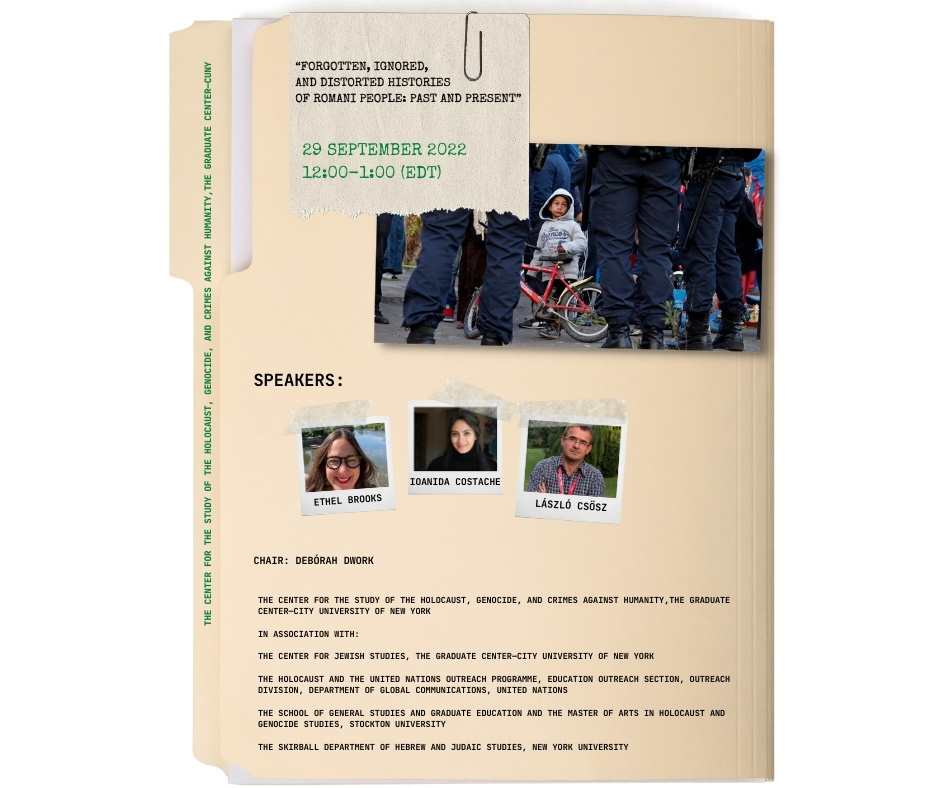“Forgotten, Ignored, and Distorted Histories of Romani People: Past and Present”
The historical record is marked by voids: elided events; disappeared people; erased accounts; marginalized communities.
The Center for the Study of the Holocaust, Genocide, and Crimes Against Humanity (Graduate Center—City University of New York), in association with the School of General Studies and the Master of Arts in Holocaust and Genocide Studies (Stockton University) and the Skirball Department of Hebrew and Judaic Studies (New York University), offers a year-long virtual series, The Marginalized and the Erased, to tackle a number of those blank spots.
Please join us on September 29, 2022 at 12:00 noon (EDT) for the first of the series:
“Forgotten, Ignored, and Distorted Histories of Romani People: Past and Present”
Groundbreaking scholars Ethel Brooks, Ioanida Costache, andLászló Csősz move between past and present as they plumb the history of anti-Roma racist violence, and the erasure of that history even as the violence persists. Drawing upon testimonies and documents, their presentations reveal individual, communal, and institutional obstacles to remembrance and education. Chair of Women’s, Gender, and Sexuality Studies at Rutgers University, award-winning scholar Prof. Ethel Brooks serves (among many positions) as Chair of the Board of the European Roma Rights Center. Dr Ioanida Costache, recipient of a prestigious postdoctoral fellowship at the University of Pennsylvania, focuses on Romani historical trauma and artistic practice. Prof. László Csősz, historian and senior archivist at the National Archives of Hungary is also a Claims Conference University Partnership in Holocaust Studies Senior Lecturer at the ELTE University in Budapest. His current project explores the wartime history of the Hungarian Roma.
Chair: Debórah Dwork
The Center for the Study of the Holocaust, Genocide, and Crimes Against Humanity, The Graduate Center—City University of New York
In association with:
Center for Jewish Studies at The Graduate Center—City University of New York
The Holocaust and the United Nations Outreach Programme, Education Outreach Section, Outreach Division, Department of Global Communications, United Nations
The School of General Studies and the Master of Arts in Holocaust and Genocide Studies, Stockton University
The Skirball Department of Hebrew and Judaic Studies, New York University

